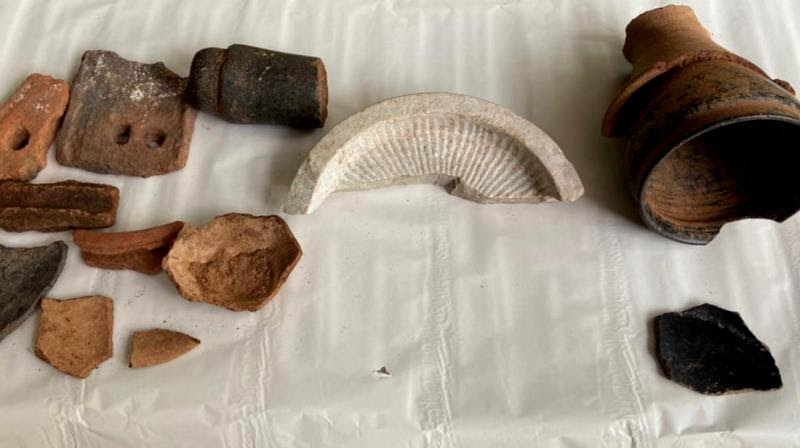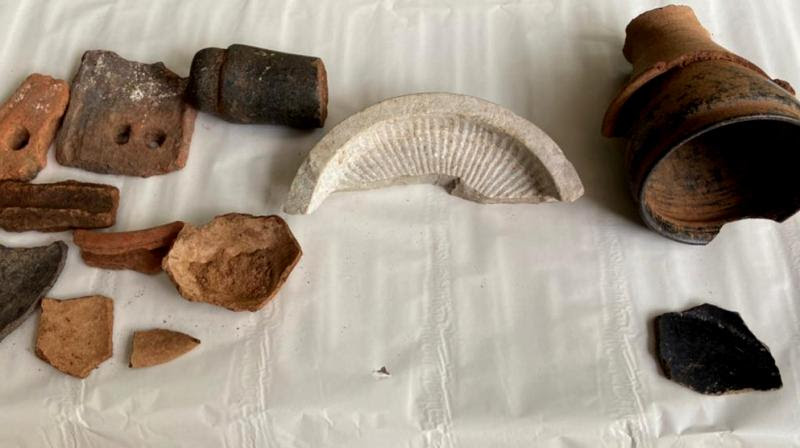
By — Shyamal Sinha
Buddhist relics said to be 2,100-year-old were found at Vaikuntapuram in Thullur mandal of Guntur district on Tuesday. They surfaced during diggings at Bhavaghni Ashram in the village. An archeologist, who examined the findings, said the locals found a conical polished cup, terracotta tiles once used in the roofs of ‘Buddhist viharas’, a piece of well-polished muller granite and a broken parasol that enshrined a stupa of the Satavahana period.
Seeing the artefacts, asram people contacted Dr. E. Sivanagi Reddy, Buddhist archaeologist and CEO, Cultural Centre of Vijayawada and Amaravati, who has examined the finds.
Since then, Sivanagi Reddy has found a conical cup of polished ware inserted into a redware stand of Iron Age (1000 BC), pit shreds of redware, terracotta tiles that once covered roofs of Buddhist viharas, a well polished black granite muller, and a broken chatra (parasol) that enshrined a stupa of Satavahana period.
The Buddhists archaeologist says a surprise discovery is a Brahmi inscription, which mentions that the chatra was donated by one household Pusana. He said Dr. K. Muniratnam Reddy, Director, Epigraphy Branch, Archaeological Survey of India, has confirmed that the script in Prakrit language belongs to 1st Century BC.
Dr. Sivanagi Reddy said Bhavagni Asram authorities have told him that the Buddhist finds will be displayed by them in their proposed museum at Vyasabhagavan Temple now under construction. He stated that Buddhist remains in Vaikunthapuram had originally been reported by then British archaeologists 125 years ago.












